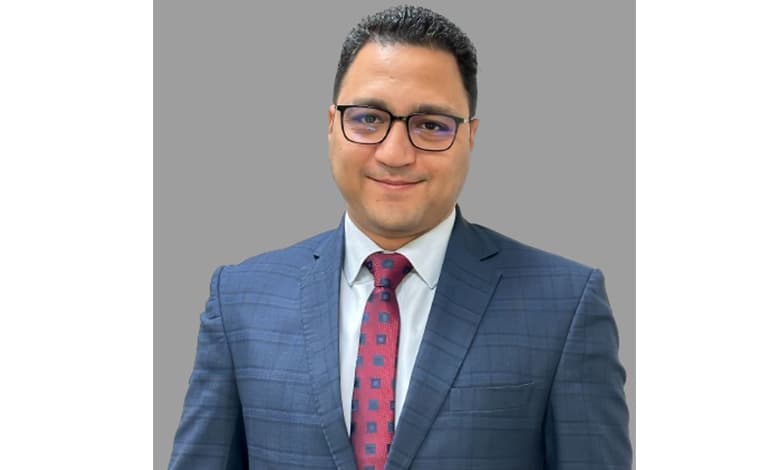In an exclusive interview, ME Printer talks to Ahmed Fayez, General Manager, Al-Kharafi Co. for Paper & Printing Equipment, Saudi Arabia, on the company’s legacy, its current standing in the regional market, on digital and offset printing, emerging trends in the graphic arts industry, and Saudi Vision 2030.
Can you give us a brief roundup of your company? When did you take over as General Manager of Al-Kharafi Co. for Paper & Printing Equipment?
Mohammed Abdulmohsin Al-Kharafi & Sons is a diversified Kuwaiti group, the largest private company in the country and one of the largest in the Arab world. Al-Kharafi Co. for Paper & Printing Equipment, based in Riyadh, Saudi Arabia, is one of the group’s leading enterprises.
Founded in 1956 by the late Mohammed Abdulmohsin Al-Kharafi as a contracting company, its activities diversified rapidly with the oil boom into fields such as general trade, agriculture, food, restaurants, steel, real estate, entertainment, tourism, etc., expanding regionally and internationally with its presence in Lebanon, Syria, Saudi Arabia, Egypt, Ethiopia, and Albania.
The Kuwaiti-based group has developed into a large multinational company with about 70 companies under its fold.
I was honoured to join Al-Kharafi in 2021, after several successes in the printing and packaging sector in the Arab region and coming to represent major international brands as their exclusive agent in Saudi Arabia and Kuwait.
What has been your company’s contribution to the printing and packaging sectors in Saudi Arabia?
We have been providing printing equipment and solutions in the Saudi market for over 20 years with great success. Our company, for example, exclusively supplies printing machines and equipment to King Fahd Complex for the Printing of the Holy Quran. As a major provider in the field of security printing, we also supply the latest printing solutions and equipment to government printing presses in the Kingdom of Saudi Arabia.
In the packaging sector, we supply integrated solutions that cover all stages of production through our subsidiaries including Obeikan Investment Group and Al-Hayat House for Printing & Packaging in Riyadh; International Printing Company in Jeddah; Noor Press, Al Jawad Carton & Packaging Factory, and Afan Printing Press in Dammam; as well as modern entities such as Takwenat Factory for industrial and packaging solutions in Al-Jouf region.
Estimates suggest that the printing market in Saudi Arabia, worth $800 million, is the largest in the region, and is steadily growing at 8% per annum. Based on these figures, which sectors in the printing industry do you feel are more promising and lucrative?
Packaging is one of the largest sectors that have grown during the coronavirus pandemic, not only in Saudi Arabia, but across the world, whether through offset or digital printing, and is considered a promising and profitable sector in line with Saudi Vision 2030.
You have recently signed a dealership agreement with Agfa for the Saudi market. Are you offering their entire range of printing and consumable products in Saudi Arabia?
Yes, we have been able to establish a successful partnership with Agfa. We are already in the process of providing all the solutions provided by the Belgian-German multinational corporation as an exclusive agent in the Kingdom of Saudi Arabia, ranging from digital printing equipment to various offset materials, such as printing plates.
You are an agent of offset manufacturer Koenig & Bauer and digital press maker Xeikon. Based on your experience and considering new and emerging trends in the graphic arts industry, which among the two is growing faster in our region?
In the Middle East, both sectors are growing parallelly due to different needs and applications that can be printed using offset or digital technology. Currently, offset printing machine manufacturers are working closely to reduce processing time and increase automated technologies in solutions and equipment, in order to reduce the cost and time of producing small orders to compete with the advantage provided by digital printing.
On the other hand, digital printing machine manufacturers are working on developing their equipment by opening new horizons, using them in in-mold labeling (IML) and corrugated printing.
As a major supplier of equipment in the Saudi market, how are you contributing to Saudi Vision 2030?
The National Industrial Development and Logistics Program (NIDLP), which is part of the Kingdom’s Vision 2030, aims to transform Saudi Arabia into a leading industrial powerhouse and a global logistics hub, by maximizing the value of its mining and energy sectors while unlocking the full potential of local content and the 4th Industrial Revolution (4IR).
The programme also pays special attention to the hub of the 4IR, represented by solutions and machines of our clients such as Koeing & Bauer – as 4IR is one of the most important enablers of the main sectors included in the programme and its support factors in order to reach its goals and the desired impact. Thus our company is considered one of the active shareholders in achieving the Kingdom’s Vision 2030.
You are also a representative of Japanese global ink manufacturer Toyo Ink. Based on your experience, will there be more demand for environmentally friendly inks and other consumables in Saudi Arabia?
Yes, there is certainly an increasing demand, in line with the Kingdom’s Vision 2030 to move towards environmentally friendly solutions. There is an increase in the demand for food grade and low migration (LM) inks, which we offer through Toyo Ink for the Saudi market. In line with the global trend to reduce the use of plastic, work is currently underway to develop a new type of varnish coating.
